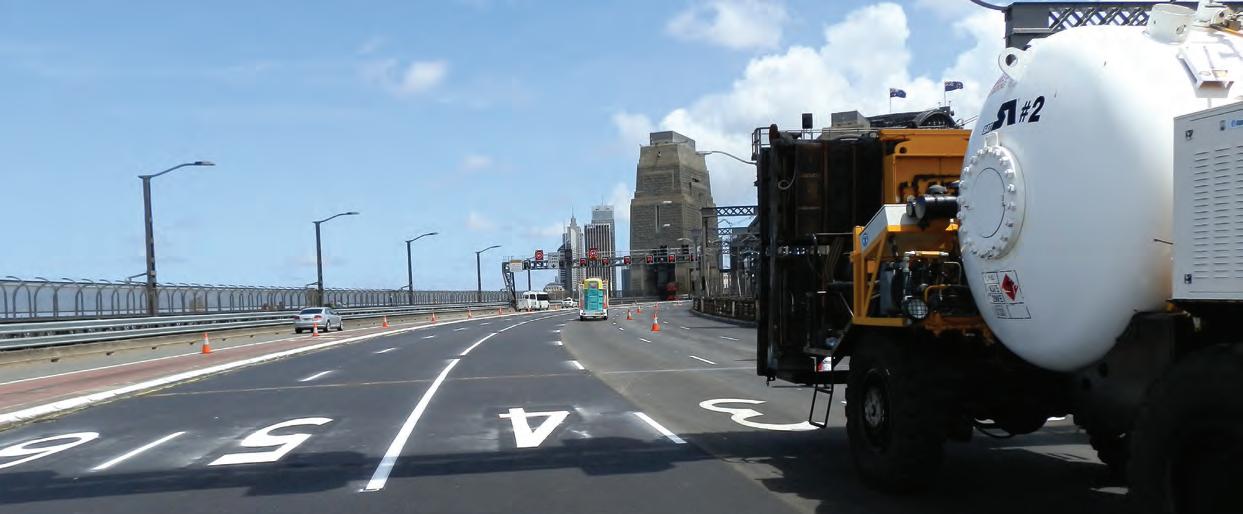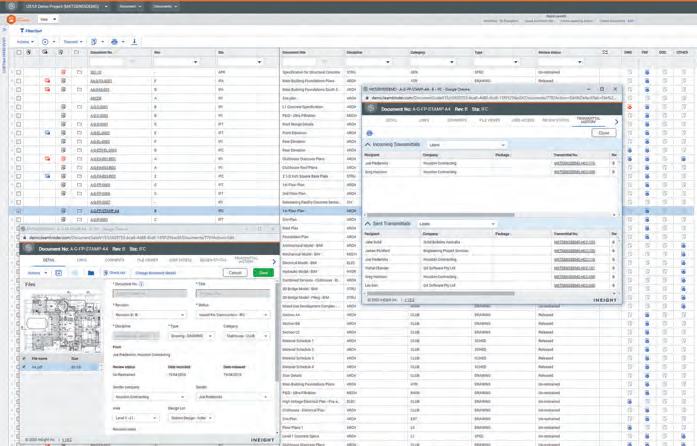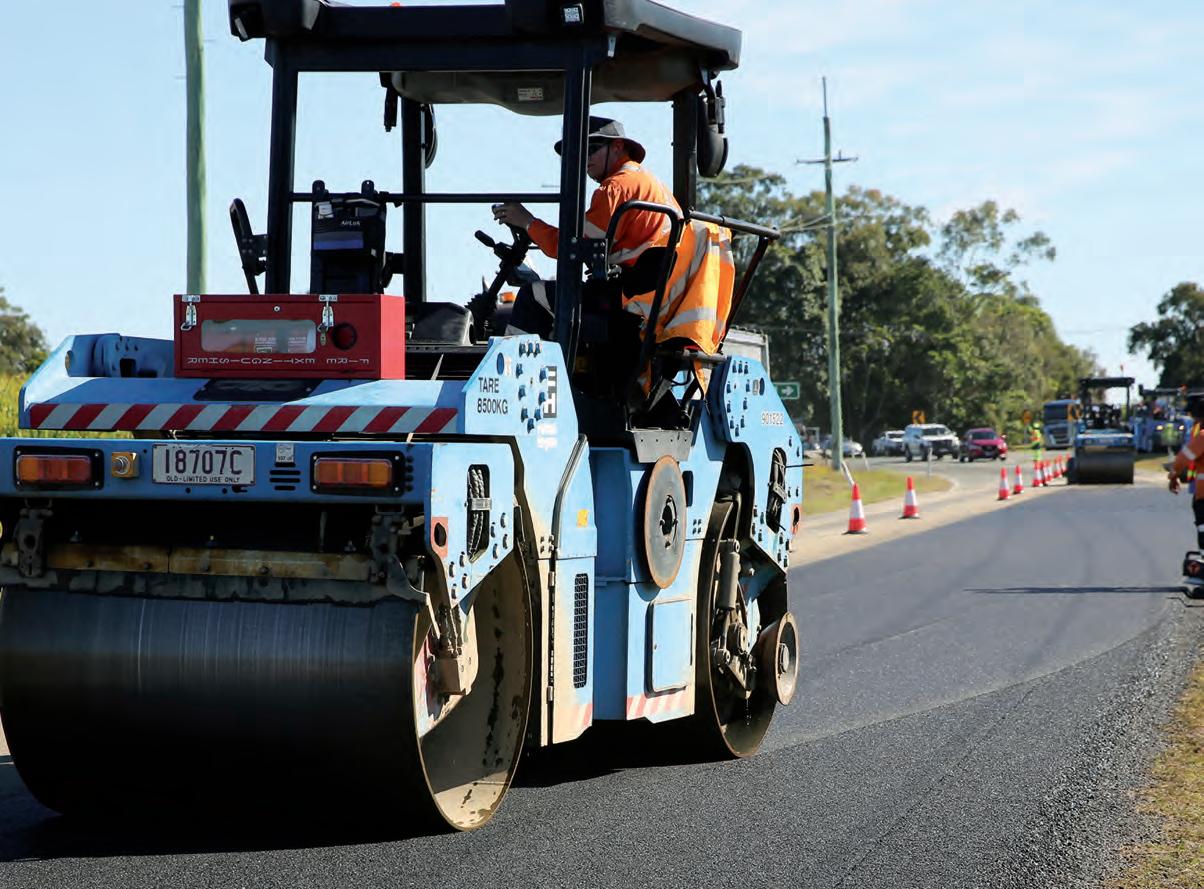COUNCIL PAVES THE WAY TO
GREENER ROADS AS MORE AUSTRALIAN COUNCILS LOOK TO RECYCLED ROAD PRODUCTS, MORETON BAY REGIONAL COUNCIL IS DEMONSTRATING LEADERSHIP WITH SUBSTANTIAL VOLUMES OF RECYCLED PRODUCT USED IN ITS RESURFACING PROGRAM.
T
he movement towards prioritising recycled products in road infrastructure is increasingly gaining traction in the local government sector. Towards the end of 2019, nine South Australian councils signed a memorandum of understanding (MOU) to prioritise the purchase of products made from recycled materials, including road and construction materials. The Southern Sydney Regional Organisation of Councils (SSROC), which represents 11 member councils, followed with an MOU to develop a framework for regional procurement of recyclables in infrastructure. SSROC set a target to recycle 45 million glass bottles per annum, citing the Council of Australian Governments’ plan to ban the export of recyclable materials as a reason for the MOU. Whether the ban itself is a damp squib that doesn’t directly amount to extensive recycling outcomes is a notion that may
be better understood over time. Moreover, when it comes to waste streams such as tyres and glass, the impact of an export ban is negligible. Small amounts of glass are exported per year compared to other waste at less than 20,000 tonnes in 2017-18, according to the Consultation Regulation Impact on phasing out certain waste exports. Despite this, the symbolism of a ban is telling: using recycled product in local government road infrastructure projects is a high priority. In Queensland, for example, Moreton Bay Regional Council has set its sights on working towards including recycled product in all its road resurfacing projects. Towards the end of last year, Moreton Bay Regional Council resurfaced six Caboolture streets with PolyPave, an innovative, high-performance asphalt containing reclaimed plastics and pavement. Recycled materials leader Alex Fraser developed PolyPave and supported
Six streets were resurfaced with PolyPave, an innovative highperformance asphalt containing reclaimed plastics and pavement.
34
ROADS APRIL 2020
the successful uptake by a range of councils throughout Australia, including Victoria’s City of Yarra, the City of Bayside, the City of Maribyrnong and Queensland’s Redland City Council. Sustainability is a priority for local governments, particularly those setting ambitious emissions reduction targets, and an evidence-based approach to performance is proving equally important. Alex Fraser put its green asphalt through its paces. Following an intensive research and development phase, PolyPave was subject to extensive, independent testing by with a third-party, NATA-accredited laboratory. Importantly, this testing ensured PolyPave met Australian and Austroads asphalt standards, as well as the asphalt design testing required for mixes to be allowed by the Department of Transport. The research and development compared PolyPave asphalt with a control mix. The tests showed an improvement of 15 per cent in wet tensile strength, a 20 per cent increase in rut resistance and a four per cent increase in fatigue life. Eddie Hopson, Team Operations Manager at Moreton Bay Council, says that when it came to the application of PolyPave, the primary driver was improving environmental outcomes while ensuring no reduction in performance. “Recycling plastic is something the entire country has to become better at with the cessation of waste materials exports,” Mr. Hopson explains. “Moreton Bay Regional Council is the third-largest local government in Australia which leaves us in a good position to not only make economically sound decisions, but also ensure we leave our environment in a better place for our children.” Mr. Hopson says discussions started





















